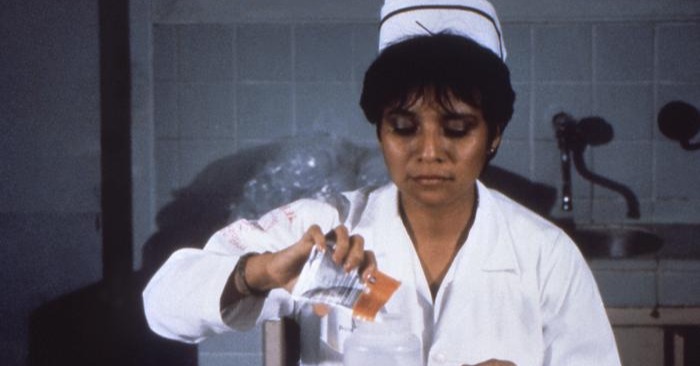
What Does a Family Nurse Practitioner Do?
Family nurse practitioners perform most of the same tasks as [...]

According to Psychiatric Times, approximately 20 percent of adults live with mental illness and even more experience feelings of anxiety and depression. Sadly, fewer than half receive the proper mental health care, in part because of a nationwide shortage of mental health practitioners.
Psychiatric nurses—including registered nurses (RN) and advanced practice registered nurses (APRN)—can help meet the demand by providing direct treatment for a variety of psychiatric issues. Roles in psychiatric nursing exist at every education level. Those with an associate degree or bachelor’s degree can perform valuable duties related to initial intake, medication management, and more. Advanced practice nurses can prescribe medication and offer psychotherapy.
Demand for psychiatric nurses is growing. The 2022 American Psychiatric Nurses Association (APNA) workforce survey says 27 percent of advanced practice nurses plan to retire within six years. Only about half of all psychiatric RNs plan to work for more than ten years (13 percent haven’t decided). That should create a lot of opportunities in a field that’s already short on practitioners, meaning qualified nursing professionals should face no dearth of opportunities in the coming years.
Intrigued? If so, you’ll want the answer to the question what is psychiatric nursing? This article provides it and also discusses:
Registered nurses (RN) are trained clinicians who provide care, education, and support to patients and their families. They conduct intake assessments and manage the patient’s medical chart. RNs also administer medication and operate medical equipment.
RNs work alongside doctors and other nurses, including APRNs (who may serve as nurse leaders). RNs also perform leadership duties, including overseeing the work done by assistants, aides, and licensed practical nurses (LPN).
The BLS says RNs earn a median income of nearly $80,000, though several factors, including where you live, can influence this number. RNs in rural areas typically earn far less than those in large cities like New York.
Psychiatric nurses treat patients with mental health issues. They can work in nursing homes, hospitals, substance abuse treatment centers, schools, mental health facilities, and correctional facilities. Most (70 percent) work in outpatient facilities. In some states, psychiatric mental health nurse practitioners (PMHNP) can operate a private practice.
A psychiatric nurse’s job description depends on several factors, most prominently their level of education. Psychiatric mental health nurses (PMHN) are RNs with similar responsibilities as traditional RNs, except they work specifically with mental health patients and their families. PMHN duties include triaging patients, completing the intake, and administering psychiatric medication. They examine the patient’s environment and relationships but do not offer therapy.
PMHNs typically have a Bachelor of Science in Nursing (BSN), but other pathways include an Associate Degree in Nursing (ADN) or a hospital-based nursing program. To become licensed RNs, these professionals must pass the National Council Licensure Examination (NCLEX-RN) after graduating.
It’s possible to work in psychiatric settings as an RN. Those who want to become certified PMHNs—it’s not a requirement—must earn the Psychiatric-Mental Health Nursing Certification (PMH-BC). Candidates need at least two years of RN experience to sit for this exam. They also need 2,000 or more hours of clinical psychiatric nursing practice and at least 30 hours of psychiatric continuing education in the previous three years. Those who pass the test earn a credential that must be renewed every five years.
PMHNs can pursue further education to become PMHNPs. Most nurse practitioners (NP) gain extensive professional experience before completing a graduate degree program. One academic paper says the average NP spent 13.75 years as an RN. Spending time in a psychiatric RN position is not necessary if you want to become a PMHNP. Most programs require only that you be a certified RN.
PMHNPs can receive a substantial pay bump. According to Indeed, the average PMHNP earns more than $140,000 annually.
Psychiatric mental health is one type of NP specialty. Others include women’s health, neonatal nursing,
pediatrics, emergency nursing, and adult gerontology. To become an NP, you must complete either a Master of Science in Nursing (MSN) or Doctor of Nursing Practice (DNP). Doctoral degrees typically take longer and demand more rigorous academics than master’s degrees.
While there’s a push within the industry to make the DNP standard for all NPs by 2025, it hasn’t quite taken hold. Currently, less than one percent of all nurses have a DNP.
After completing formal education, PMHNPs must earn board certification; they cannot work in psychiatric settings without formal certification. PMHNPs pass the Psychiatric-Mental Health Nurse Practitioner (Across the Lifespan) Certification (PMHNP-BC), offered through the American Nurses Credentialing Center (ANCC).
Unlike RNs, PMHNPs can assess and diagnose patients, plus offer psychotherapy and prescribe medication. In these ways, PMHNPs act more as psychiatrists than nurses. PMHNPs can be nurse leaders who manage and lead a team of RNs. Depending on their position title and seniority, these professionals may coordinate care plans and unit-wide changes with physicians and administrators.
For those who attend school full-time, completing an MSN typically takes two years. Students pursue foundational NP coursework like pathophysiology, health assessment, pharmacology, and patient-centered care. Then, they complete psychiatric nursing classes. Those courses can cover psychiatric medication, therapeutic methods, and techniques for working with different populations, such as children and families. All PMHNP students—regardless of whether they study on-campus or online—complete 500 or more clinical practice hours during their graduate education. Yale University will launch an online PMHNP program in the summer of 2023.
Not everybody is qualified for a psychiatric nursing career. To succeed in this field, you’ll need a high tolerance for stress and turmoil. Nurses of all specialties face burnout and other emotional and physical issues. However, many find this career rewarding. PMHNPs are among the few mental health professionals qualified to offer therapy and medication; their work can leave a deep and positive impact on patients.
Questions or feedback? Email editor@noodle.com

Family nurse practitioners perform most of the same tasks as [...]

Education requirements for nurses in the U.S. are becoming more [...]

Nurse practitioners (NPs) typically earn six figures, but NP salaries [...]

Becoming a nurse practitioner can be arduous. The journey requires [...]

A Doctor of Nursing Practice (DNP) degree qualifies you for [...]
Categorized as: Advanced Practice Nursing, Nurse Practitioner, Nursing & Healthcare